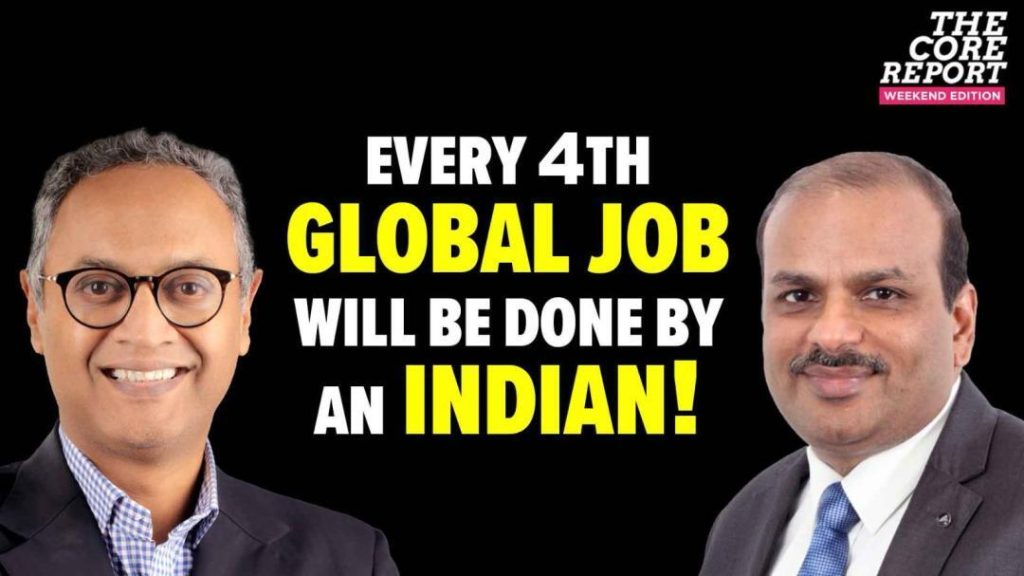
India’s Workforce Grows but Skilling Gaps Persist
India’s population is expected to dominate global employment in the coming decades, with the workforce projected to grow by 202 million by 2025. This presents a significant opportunity for economic growth, but also poses a challenge for policymakers, educators, and employers to ensure that the country’s workforce is equipped with the skills needed to thrive in a rapidly changing labour market.
The National Skill Development Corporation (NSDC) has been at the forefront of efforts to address this challenge, with initiatives such as work-integrated degrees, digital skill passports, and AI training. These programs aim to provide Indian workers with the skills and knowledge needed to compete in a global economy that is increasingly driven by technology and innovation.
According to a recent report by NSDC, the Indian workforce is facing a significant skilling gap, with an estimated 32% of workers lacking the skills needed to adapt to changing job requirements. This gap is particularly pronounced in industries such as manufacturing, IT, and healthcare, where workers are expected to have skills in areas such as automation, artificial intelligence, and data analytics.
To address this challenge, NSDC is working with educational institutions, employers, and government agencies to develop programs that provide workers with the skills and knowledge needed to succeed in a rapidly changing labour market. One of the key initiatives is the development of work-integrated degrees, which combine theoretical education with practical work experience.
“Work-integrated degrees are designed to provide students with the skills and knowledge needed to succeed in a rapidly changing labour market,” said a spokesperson for NSDC. “By combining theoretical education with practical work experience, we can ensure that workers are equipped with the skills and knowledge needed to adapt to changing job requirements.”
Another key initiative is the development of digital skill passports, which provide workers with a portable record of their skills and qualifications. This allows workers to easily transfer their skills to new jobs and industries, and provides employers with a clear understanding of the skills and qualifications of potential employees.
“Digital skill passports are a game-changer for workers and employers alike,” said a spokesperson for NSDC. “By providing workers with a portable record of their skills and qualifications, we can ensure that they are equipped to adapt to changing job requirements and that employers have a clear understanding of the skills and qualifications of potential employees.”
In addition to these initiatives, NSDC is also working to develop AI training programs that provide workers with the skills and knowledge needed to work with artificial intelligence and automation. This includes training programs in areas such as data analytics, machine learning, and robotics.
“AI training programs are critical for workers in a rapidly changing labour market,” said a spokesperson for NSDC. “By providing workers with the skills and knowledge needed to work with artificial intelligence and automation, we can ensure that they are equipped to adapt to changing job requirements and that employers have a clear understanding of the skills and qualifications of potential employees.”
Despite these efforts, challenges remain-especially around wages, expectations, and aligning education with real-world needs. Many workers in India continue to struggle to earn a living wage, and there is a growing sense of frustration and disillusionment among young workers who are not seeing the opportunities they were promised.
According to a recent report by the World Bank, the majority of young workers in India are not earning a living wage, and many are forced to work multiple jobs just to make ends meet. This is particularly true for workers in low-skilled industries such as agriculture and manufacturing, where wages are often low and unpredictable.
To address this challenge, NSDC is working to develop programs that provide workers with the skills and knowledge needed to earn a living wage. This includes training programs in areas such as entrepreneurship, innovation, and digital skills, which provide workers with the skills and knowledge needed to start their own businesses and create their own jobs.
“We are committed to providing workers with the skills and knowledge needed to earn a living wage,” said a spokesperson for NSDC. “By developing programs that provide workers with the skills and knowledge needed to start their own businesses and create their own jobs, we can ensure that they are equipped to succeed in a rapidly changing labour market.”
In conclusion, India’s workforce is growing, but skilling gaps persist. NSDC’s efforts to address this challenge are critical, and include initiatives such as work-integrated degrees, digital skill passports, and AI training. While challenges remain-especially around wages, expectations, and aligning education with real-world needs-the development of these programs provides a critical foundation for ensuring that India’s workforce is equipped to thrive in a rapidly changing labour market.
News Source:
https://youtu.be/Qh4DcNSSqw4






